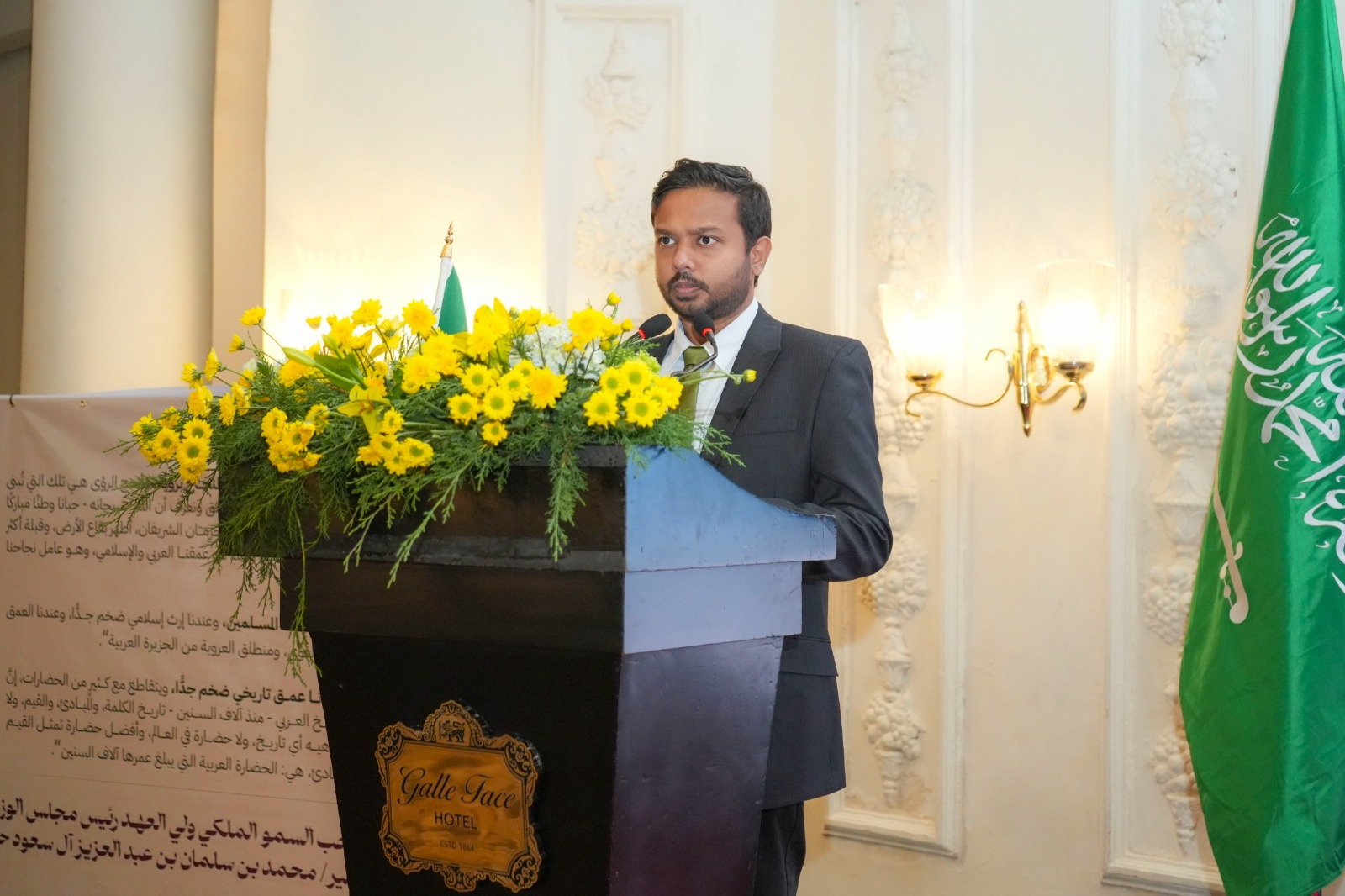
Anura’s Government focuses on strengthening ties with the Middle East – Hon. Arun Hemachandra, Deputy Minister of Foreign Affairs and Foreign Employment
- CNL Reporter
- December 24, 2024
- Political
- 0 Comments
Arabic, spoken by over 450 million people and holding official status in nearly 25 countries, is a global language with immense cultural significance. I am happy to take part in this historic event where the Royal Embassy of Saudi Arabia in Colombo commemorates the significance of the World Arabic Language Day. Exactly 51 years ago, on a day like today in 1973, the United Nations General Assembly designated Arabic as the organization’s sixth official language.
It’s also a day to acknowledge the contributions of Arabic-speaking scholars, poets, writers, and scientists throughout history, whose works have left an indelible mark on human civilization. The celebration of World Arabic Language Day is an opportunity to recognize and celebrate the richness of the Arabic language and its cultural impact globally. Hence, I take this opportunity to thank His Excellency Khalid Hamood Alkahtani, the Saudi Ambassador to Sri Lanka, for holding such a remarkable celebration in Colombo.
The efforts and advocacy of countries such as Saudi Arabia, and others within the Arab League, have contributed significantly to the global recognition and celebration of the Arabic language on this specific day.
Under the dedicated commitment and attention of the Custodian of the Two Holy Mosques, His Majesty King Salman bin Abdulaziz, towards the regional and global promotion of the classical Arabic language, its dissemination, empowerment, and preservation of its purity, the Council of Ministers has granted approval for the establishment of the King Salman Global Academy for Arabic Language.
This initiative is an integral part of the Kingdom’s cultural endeavors, aimed at accentuating the language’s significance and enhancing Arabic content across diverse domains. The Academy assumes a pivotal role in championing and advancing the Arabic language, catering to specialists in Arabic linguistics, professionals in technology and educational content production, as well as both native and non-native Arabic language learners.
Under the leadership of President Anura Kumara Dissanayake, Sri Lanka has paid much attention to the Middle Eastern region, as many Sri Lankans, close to one million are living and working there. We understand that, learning new languages paves way to discover more about the world, especially it plays as a bridge in connecting various cultures and minimizing differences. I am happy to see that Arabic language is taught in many schools and universities of Sri Lanka such as the University of Peradeniya, University of Colombo, Eastern University and South Eastern University. We hope to see many Sri Lankans get aspired to learn Arabic more and more. I hope this kind of Arabic Language promotional events and commemorations will promote and encourage more and more Sri Lankans to learn the language.
Arabic serves as the official language in many countries in the Arab league, fostering diplomatic relations and economic partnerships across the Middle East and the world. As a language connecting diverse cultures and playing a pivotal role in the Islamic world, Arabic’s power lies not only in communication but also in its ability to preserve and propagate ideas, values, and traditions across generations. Arabic stands as a testament to the enduring legacy of Arabic culture and its continued importance in today’s interconnected world.
The Qur’an, the holy book of Islam, written in classical Arabic has contributed immensely to the preservation and dissemination of Islamic religious values and teachings. Arabic language provides access to a staggering range of cultural identities and beliefs, and its history illustrates the range of its connections with other languages. It has given rise to a fascinating aesthetic in domains as diverse as architecture, poetry, philosophy, calligraphy, and music.
The Arabic language holds a pivotal place in history, culture, and religion. Its roots trace back to the Arabian Peninsula, where it evolved and spread across vast regions, becoming a language of trade, science, literature, and religion. It has allowed for cultural exchange along the silk route, from the coast of India to the Horn of Africa, East Asia and Central Asia.
Before I conclude, I would like to thank Ambassador Khalid Hamoud Alkahtani for his leadership and contribution, for strengthening the close bonds of friendship and cooperation between our two countries. I also take this opportunity once again to thank the Ambassador and the staff of the Embassy of the Royal Embassy of Saudi Arabia in Colombo, for their immense support, and contribution in organizing an Arabic Language Day in Colombo, to commemorate its significance.
Thank you

